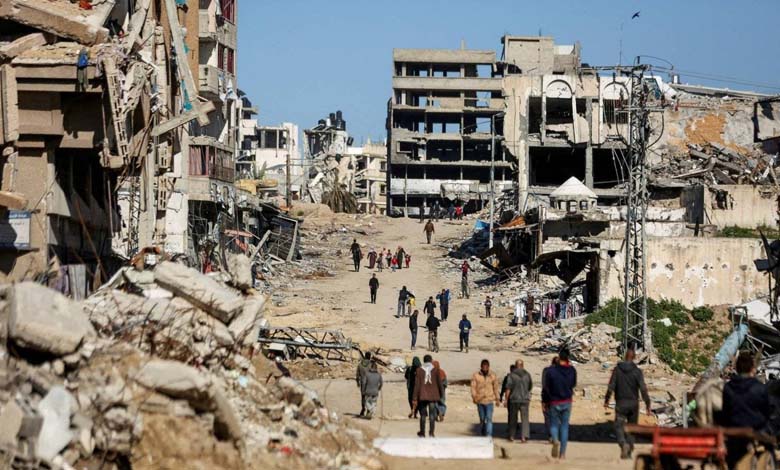After new demands from Hamas and Israel’s intransigence… have the Gaza truce negotiations stalled?

The American newspaper The Washington Post has revealed the latest developments in the truce negotiations in the Gaza Strip, where the United States and mediators in Egypt and Qatar are working to end the war as soon as possible. However, Israel remains highly intransigent, while Hamas has made new demands regarding the Palestinian prisoners set to be released.
-
Stubbornness from Hamas and Israeli conditions are dimming hopes for a ceasefire
-
Iran explores details of anticipated exchange deal between Hamas and Israel
An uncertain future
The newspaper stated that all efforts by the American administration and President Joe Biden have taken a significant turn after Hamas‘s recent demands. American officials say they are reassessing the next steps after initially hoping to present a “take it or leave it” proposal to both sides in the coming days.
The newspaper added that Hamas‘s surprise new demand concerning the Palestinian prisoners posed a new stumbling block. The United States, along with Qatar and Egypt, believed that an agreement was within reach. However, either Israel or Hamas obstructed the talks with new demands, pushing negotiators back by weeks or even months.
The newspaper noted that overall, Biden’s chances of ending the war in Gaza and freeing the hostages before leaving office are increasingly remote, raising the possibility that he may end his presidency without mediating an end to the war, which is nearing its second year.
Negotiators increasingly fear that neither Israel nor Hamas has a genuine incentive to reach a ceasefire agreement in the 11-month-long war.
-
Exchange of Accusations Between Israel and Hamas Over the Killing of Six Hostages
-
Hamas After the Bombing of Khadija School: Israel Lies and Does Not Want to Stop Its Aggression
Insincere pressures
Palestinian political analyst Mohsen Abu Ramadan stated that there are two reasons for Israel’s intransigence in the truce and ceasefire negotiations in the Gaza Strip. The first is related to Israeli Prime Minister Benjamin Netanyahu‘s personal interests. He believes that the day a ceasefire agreement and a prisoner exchange deal are reached will be the day his trial begins on three corruption cases, as well as a fourth case concerning the failure of October 7th, when Israel’s security and iron wall theories collapsed under his leadership.
-
Hamas Remaining in Power and Ceasefire Demand: Israeli Army’s Requests Anger Netanyahu
-
Have negotiations between Israel and Hamas reached a deadlock?
He added that there are tensions and disputes between Netanyahu, the security services, and the Israeli military establishment. The second reason, according to him, is that Netanyahu sees himself as the heir of Ze’ev Jabotinsky, leader of the revisionist faction of the Zionist movement, and wants to achieve glory at the expense of Palestinian blood, particularly in expanding Israel’s territory according to his plan for the genocide of the Palestinian people.
-
Suspicious Relationship Between Israel and Hamas… Facts and Testimonies
-
Hamas calls for an international investigation in Gaza and accuses the Israeli occupation of committing these crimes against civilians
He explained that there have not yet been any serious pressures from the United States on Israel to accept a ceasefire deal in Gaza: “The Israeli army wants to bolster the potential for expanding the Zionist colonial project at the expense of the region in general.” He added that the conflict with Iran is currently being used as a scare tactic to drag the United States into a regional conflict.












